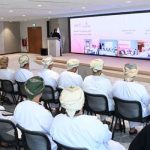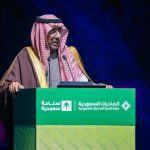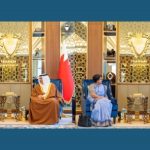The 4th Qatar International Haematology Conference recently took place at the National Center for Cancer Care & Research (NCCCR) in Doha, Qatar. This two-day event brought together experts in the field of haematology from around the world to discuss the latest advancements and future developments in haematology care in the region. Professor Honar Cherif, Chairman of Haematology and BMT at NCCCR, and Conference Chairman, expressed his satisfaction with the conference, noting the vibrant discussions and collaborations that took place among leading researchers and practitioners in haematology.
The conference featured an impressive lineup of keynote speakers who shared insights on cutting-edge research in blood disorders, innovative treatment methods, and groundbreaking advancements in immune therapy, targeted therapy, and personalized medicine. With a focus on both clinical and research aspects of haematology, attendees were able to gain hands-on experience and interact directly with top experts in the field. Professor Mohamed Yassin, Head of Haematology at NCCCR and Conference Co-Chair, emphasized the importance of the scientific program, which covered a wide range of topics including acute and chronic leukaemia, myelodysplastic syndrome, myeloproliferative neoplasms, and lymphoma.
The conference boasted a diverse lineup of speakers from countries such as Italy, Germany, the United Kingdom, France, and Qatar, among others. In addition to the lectures, the event featured ten scientific posters showcasing various research projects in the haematology field. Dr. Anas Hamad, Director of Pharmacy at NCCCR and Conference Co-Chair, highlighted the significance of the conference as the largest haematology event ever held in Qatar and one of the largest in the GCC region. With over 500 attendees, including physicians, pharmacists, nurses, researchers, students, and industry representatives from Qatar and neighbouring countries such as Kuwait, Bahrain, the United Arab Emirates, and Oman, the conference served as a platform for networking and knowledge-sharing.
The interactive exhibition area at the conference featured 15 exhibitors showcasing the latest innovations in treating haematological malignancies. Overall, the 4th Qatar International Haematology Conference was deemed a landmark event that brought together global experts, highlighted pioneering innovations in the field, and advanced the frontiers of haematological science and practice. The conference also played a crucial role in fostering collaboration and cooperation among regional and international haematology communities, furthering the progress of research and treatment in the field.










